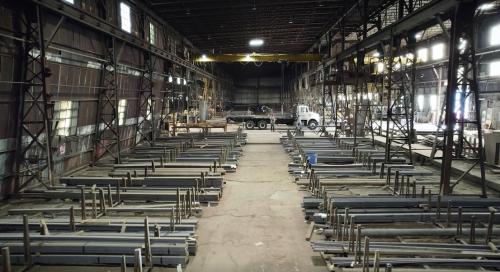Hot rolled bars have long been a staple in various industries, offering robust mechanical properties and versatility in applications. However, the landscape of metal manufacturing is continually evolving, with technological innovations reshaping traditional processes. Cutting-edge advancements in hot rolled bar technology and their profound impact on the industry include:
- High-Tech Alloy Compositions: Recent innovations in metallurgy have led to the development of advanced alloy compositions for hot rolled bars. These alloys exhibit enhanced strength, durability, and corrosion resistance, opening up new possibilities for demanding applications in aerospace, automotive, and infrastructure projects.
- Precision Hot Rolling: Precision hot rolling technology allows for tighter tolerances and improved surface finishes. This innovation ensures that hot rolled bars meet more stringent specifications, enabling manufacturers to produce components with higher precision. Industries such as medical devices and electronics benefit from the dimensional accuracy achieved through precision hot rolling.
- Controlled Cooling Processes: Temperature control during the cooling phase is critical in determining the microstructure and properties of hot rolled bars. Innovations in controlled cooling processes, such as accelerated cooling and quenching, contribute to the optimization of mechanical properties, resulting in bars with superior toughness and wear resistance.
- Digitalization and Industry 4.0 Integration: The integration of digital technologies and Industry 4.0 principles has revolutionized hot rolled bar manufacturing. Smart sensors, data analytics, and real-time monitoring systems enhance process control, ensuring consistent quality while minimizing waste. This digital transformation also facilitates predictive maintenance, reducing downtime and improving overall efficiency.
- Customization through Additive Manufacturing: Additive manufacturing, commonly known as 3D printing, is making waves in the hot rolled bar industry. This technology allows for the creation of intricate geometries and customized designs, enabling the production of tailor-made bars for specific applications. Customization through additive manufacturing is particularly advantageous in sectors requiring unique components, such as the defense and healthcare industries.
- Environmental Considerations: Innovations in hot rolled bar technology are not only focused on performance but also on sustainability. Some manufacturers are adopting eco-friendly practices, such as energy-efficient processes and the use of recycled materials. These initiatives aim to reduce the environmental impact of hot-rolling operations, aligning with the growing emphasis on sustainable manufacturing practices.
The landscape of hot rolled bar technology is experiencing a transformative era, driven by a relentless pursuit of excellence in metallurgy, process optimization, and digital innovation. These advancements not only enhance the performance and properties of hot rolled bars but also contribute to a more sustainable and efficient future for metal manufacturing. As industries continue to embrace these innovations, hot rolled bars are poised to play a pivotal role in shaping the next generation of high-performance and environmentally conscious applications.

